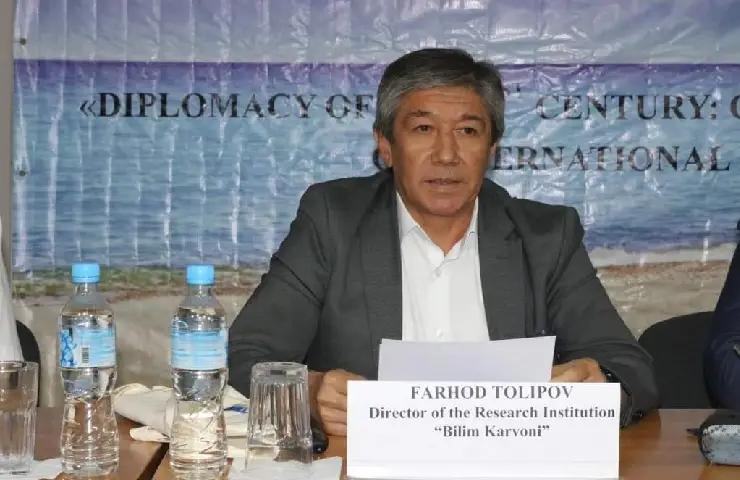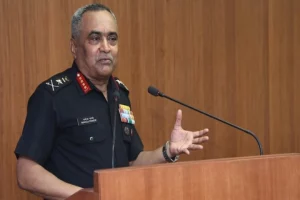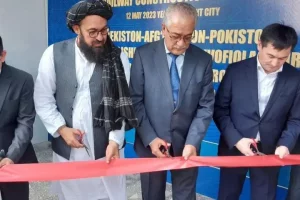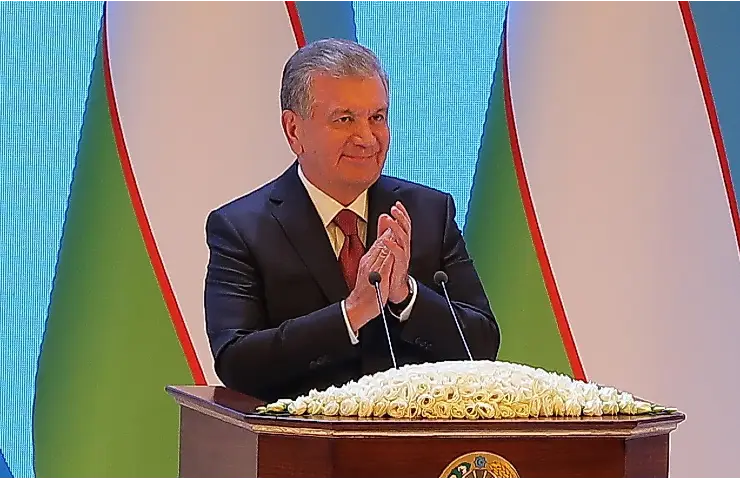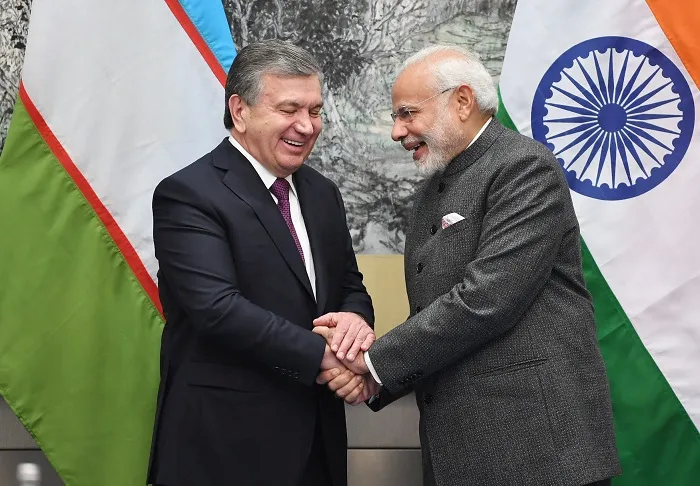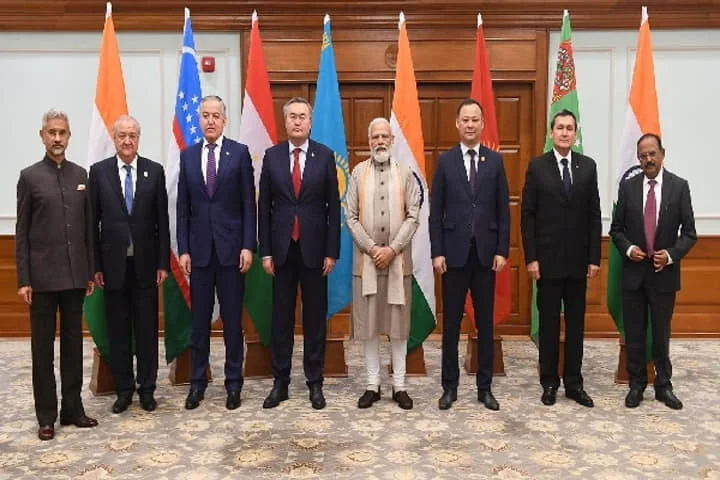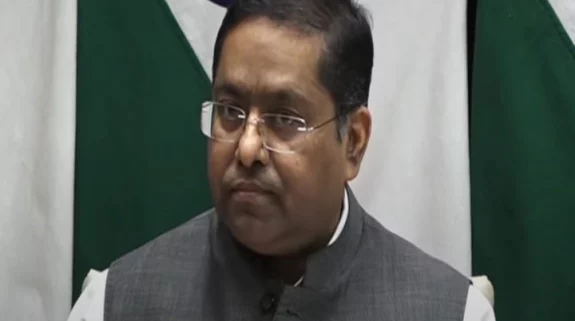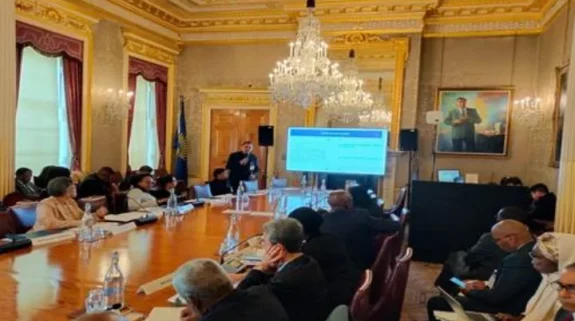Keeping its options open of engaging the United States, Russia, the Taliban and Pakistan a pragmatic Uzbekistan is set to protect its core national interests and autonomy without aligning with any specific power.
Speaking to Aditi Bhaduri, Farkhad Tollipov, a Tashkent-based political scientist and analyst who is currently the Director, Knowledge, Caravan Research Institute, Tashkent, explained that Uzbekistan is open to engage with the Taliban, and pointed to the general drivers of Tashkent's policies towards neighbouring Afghanistan. Tollipov explained that committed to not interfering in any country’s internal affairs, Tashkent would be ready to contact anyone who assumes power in Afghanistan in the spirit of maintaining peaceful and friendly relations with Kabul.
The Uzbek scholar did not rule out closer security ties with Russia. But he also found merit in participating with the US led QUAD, which also included Afghanistan and Pakistan as partners. Tollipov underplayed dangers of the Taliban seeking to extend its influence in neighbouring Central Asia, pointing out that the internal conflict inside the country is likely to keep the Taliban pre-occupied for a few years.
The Uzbek scholar said that landlocked Uzbekistan can encounter difficulties in accessing Pakistani ports and the Chabahar port in Iran. Iran, he said was facing US sanctions, while Pakistan was exposed to terrorism and violence.
Excerpts of the interview:
What drives Uzbekistan's policy towards the Taliban?
The main driver is the desire to live in peace with the neighbouring country. President Shavkat Mirziyoev stated recently that whoever comes to power in Afghanistan Uzbekistan will contact them and is interested in peace and friendly relations with any government of that country.
What are the chances of Taliban's rigid ideologies spilling over into Uzbekistan?
There is a low probability of spill over of their [Taliban's] ideology, but some extremist groups do exist in Uzbekistan, too. Much depends on the extent to which Taliban fulfil their promise to create an inclusive government and give up their relations with other terrorist organizations inside Afghanistan.
Well, the Taliban has announced a government but it remains highly exclusive – just a couple of non-Pashtuns, no Shia representative, and no woman.
If the announced government of Taliban is interim then they can change it, which is less likely. Otherwise, the international community will express a more critical position towards them. Anyhow, extremist ideology penetrated into Uzbekistan from Afghanistan even earlier, regardless who was in power. This time the degree of challenges increased. But in Uzbekistan the state controls this sphere quite efficiently; some days ago, the Ministry of Justice issued the statement which says that Uzbekistan is a secular state and no one religion can be imposed in the country by force.
Can the Islamic Movement of Uzbekistan (IMU) revive itself in the chaos that exists inside Afghanistan? Is there any threat from IMU to Uzbekistan?
As I said above, it depends on whether the Taliban gives up their relations with other terrorist groups in Afghanistan. Actually, IMU seems rather less dangerous today than it was in the past.
Will a prolonged Taliban presence in its immediate neighbourhood drive Uzbekistan closer towards Russia?
This scenario is not unlikely. However, currently, Uzbekistan’s military capacity is strong enough to stand ready for any possible incidents at the border with Afghanistan. At the same time, Taliban leaders stated that they are interested in cooperation with Uzbekistan including in [the] realization of transport projects. On the other hand, the Taliban cannot pose a major threat to Central Asia, since they, above all, have to deal with domestic instability in their own country and consolidate their power – an issue that will require a long period of time.
Why did Uzbekistan leave the Collective Security Treaties (CSTO) Organisation? It had joined it earlier.
Yes, [late President] Islam Karimov’s position was (and this is correct) that CSTO is becoming a military block, but Uzbekistan pursues non-block policy, according to its Doctrine.
How do you assess Russia's role in the Afghan crisis?
Russia’s role is controversial. On one hand, warm relations between Russia and Taliban are almost equal to recognition of the organization by Russia. On the other hand, the CSTO exercises in Tajikistan was a strong message to the Taliban that they have no perspective in Central Asia. Central Asian states seem to be depending a lot on Russia.
Such tokens have appeared recently.
By recognizing the Taliban is Uzbekistan hoping to develop closer relations with the US?
Recognition of the Taliban doesn’t depend on close relations with the US. Cooperation with the US is multidimensional and has its significance regardless [of] the situation inside Afghanistan. Moreover, Uzbekistan cannot recognize them unless the UN adopts a special resolution on this. But the international community is very critical towards the Taliban nowadays.
During the connectivity conference in Tashkent recently, the US announced new QUAD – Uzbekistan, Afghanistan, Pakistan, US. Do you think this is a viable formula? Given the terrorism and violence in Pakistan?
Obviously, this grouping is designed for promoting transport projects which Uzbekistan has been eager to realize through the territory of Afghanistan. At the same time, QUAD looks like the group which nowadays will be dealing with establishing a new order in South Asia. The recent visit of the US Congressmen to Uzbekistan and Uzbek Foreign Minister to Afghanistan seems to confirm that they [have] embarked upon some first practical steps in this endeavour.
Can you please elaborate a little bit about the QUAD establishing a new regional order. What kind, in your opinion?
This is just a hypothetical point, as it seems to me that collaboration of QUAD will be a factor of peace and cooperation. But, of course, Afghanistan is far from being stable now
And what about Iran's Chabahar port, where Uzbekistan had joined the trilateral agreement along with Afghanistan, India, and Iran for joint use of the port?
Any port is significant. Many times, Uzbekistan articulated the importance of sea ports of both Pakistan and Iran for diversification of trade routes. However, from geopolitical and security points of view, both Iran and Pakistan do not provide best opportunities for this because the former is under sanctions and the latter is exposed to terrorism and violence.
SCO likely to stay divided on Afghanistan – Tajik Historian Parviz Mullojanov
(Aditi Bhaduri is a columnist specialising in Eurasian geopolitics. Views expressed are personal)






